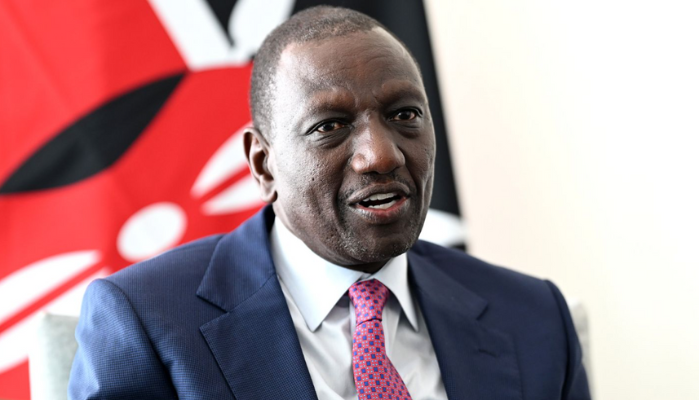
Kenya’s President William Ruto isn’t just known for his policies—he’s also earned a staggering list of nicknames, each one revealing how different segments of the population view his leadership. From El Chapo to Deputy Jesus, from Hustler to Zakayo, the labels range from humorous to scathing, often serving as mirrors of public sentiment.
A President With Many Faces—and Many Names
During a recent rally in Nairobi, Ruto laughed off the endless nicknames, telling the crowd:
“You’ve already called me Survivor, Zakayo, now Kasongo. How many more should I prepare for?”
The crowd replied with more suggestions, a sign that in Kenya, political nicknaming is more than just banter—it’s social commentary.
The Rise of the Hustler-In-Chief
Before his 2022 presidential victory, Ruto built his image around the nickname Hustler—a term in Kenya that celebrates grit and self-made success. Coming from a modest background and once selling chickens by the roadside, he also embraced the label Chicken Seller, which resonated with Kenya’s working class.
“These names helped humanize him,” explains political analyst Prof Herman Manyora. “They portrayed him as one of the people and likely won him votes.”
From “Arap Mashamba” to “Deputy Jesus”
Long before becoming president, Ruto already had his share of aliases. One of the more controversial is Arap Mashamba—loosely meaning “son of the farms”—highlighting the large tracts of land he owns. A 2013 court ruling even ordered him to surrender 100 acres seized during the 2007 post-election violence, though he denied wrongdoing.
Meanwhile, his frequent quoting of Bible verses earned him the satirical title Deputy Jesus—a nod to his overt religiosity.
From Reverence to Ridicule: The Nickname Shift
Since becoming president, the tone of the nicknames has darkened. The most biting? Zakayo—a Swahili spin on Zacchaeus, the greedy tax collector from the Bible. This name emerged after his government introduced deeply unpopular tax hikes, prompting weeks of youth-led protests.
The protest chants of “Ruto must go” quickly evolved into a new moniker: Must Go.
According to Prof Manyora, “He built his campaign on promises to help the hustlers. But once in power, many feel he turned against them.”
Vasco da Ganya and the Jet-Set President
Another sarcastic tag is Vasco da Ganya—a mix of the Portuguese explorer Vasco da Gama and the Swahili word danganya (to lie). The nickname mocks Ruto’s frequent foreign trips, which critics say come at a time of national economic struggle.
He’s also been dubbed Kaunda Uongoman, a name that references both his fashion sense (a fondness for Kaunda suits) and the Swahili word uongo (lies). It parodies the late Congolese musician Kanda Bongo Man, suggesting that Ruto’s words are more performance than policy.
The Chapati Promise and the El Chapo Joke
The nickname El Chapo, which many associate with the notorious Mexican drug lord, took on a local twist after Ruto promised to install a machine that would produce a million chapatis (locally called chapo) daily to feed schoolchildren. The promise drew laughter—and skepticism—online.
A Reflection of a Frustrated Generation
For many young Kenyans, these nicknames are more than just jokes—they’re expressions of frustration. University student Lachon Kiplimo says he admires the president’s resilience but admits that some promises feel unrealistic.
“Nicknames like El Chapo are a way of coping with disappointment,” he says.
Margaret Wairimu Kahura, a 24-year-old student, adds: “We’re hurting. These names are our way of telling him how we feel.”
When Satire Goes Too Far
While the president often laughs off the ridicule, government officials haven’t always been so tolerant. AI-generated images, memes showing the president in coffins, and other satirical content have triggered backlash. Some creators have reportedly faced intimidation or abductions.
“This shows a level of state intolerance,” warns Prof Manyora.
Still, government spokesperson Isaac Mwaura insists the names are no threat. “It’s normal for a leader to have many nicknames. They represent different facets of his leadership,” he says, arguing that tax increases are necessary to fix the economy.
A Social Media Phenomenon
Ruto isn’t the first Kenyan leader to earn nicknames—former President Uhuru Kenyatta was once called Jayden (a jab at privilege) and Kamwana (young boy), while Mwai Kibaki was known as Fence Sitter. But no leader has attracted quite as many—and as fast—as Ruto.
The age of memes, TikToks, and politically charged hashtags has made mocking political leaders easier and more widespread. And for many in Kenya, it’s the only outlet they have to push back.
As Prof Manyora notes, “These names are modern-day protest slogans disguised as jokes.”
